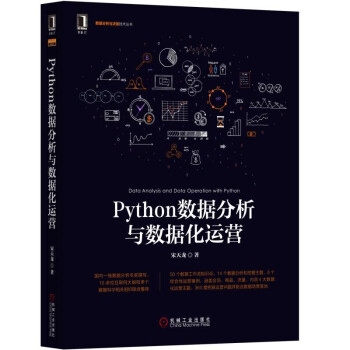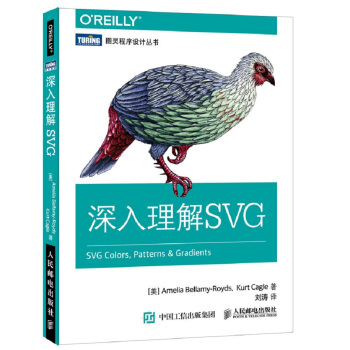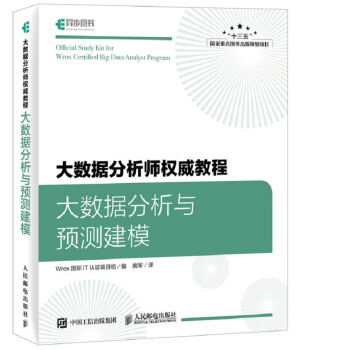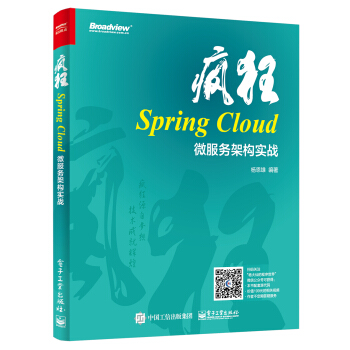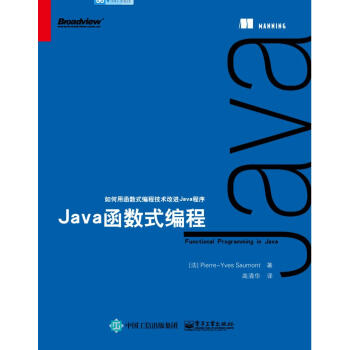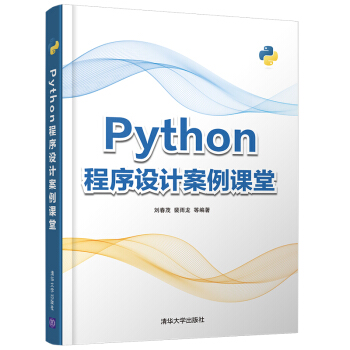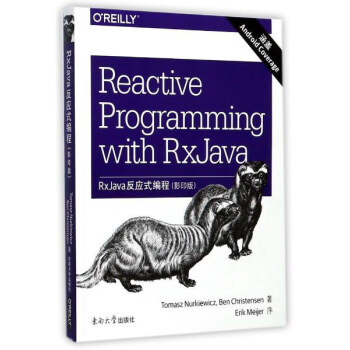

具体描述
內容簡介
在今天這個手機APP驅動的時代,程序的異步性和響應性至關重要,響應式編程能幫助你編寫更可靠、更易伸縮且性能更好的代碼。在《RxJava反應式編程(影印版 英文版)》這本務實的書中,Java開發者首先會學習到如何用反應式視角看待問題,然後再藉助這一令人興奮的全新編程範式所提供的優秀特性構建應用程序。作者Tomasz Nurkiewicz(托馬什·勒剋威茨)和Ben Christensen(本·剋斯藤森)引入瞭使用RxJava庫的具體例子,解決安卓設備和服務端上的真實性能問題。你會學到RxJava如何利用並行和並發來幫助我們解決今天的問題。
《RxJava反應式編程(影印版 英文版)》同時也提供瞭即將發布的2.0版本的預覽。
目錄
ForewordIntroduction
1. Reactive Programming with RxJava
Reactive Programming and RxJava
When You Need Reactive Programming
How RxJava Works
Push versus Pull
Async versus Sync
Concurrency and Parallelism
Lazy versus Eager
Duality
Cardinality
Mechanical Sympathy: Blocking versus Nonblocking I/O
Reactive Abstraction
2. Reactive Extensions
Anatomy of rx.Observable
Subscribing to Notifications from Observable
Capturing All Notifications by Using Observer
Controlling Listeners by Using Subscription and Subscriber
Creating Observables
Mastering Observable.create0
Infinite Streams
Timing: timer() and interval()
Hot and Cold Observables
Use Case: From Callback API to Observable Stream
Manually Managing Subscribers
rx.subjects.Subject
ConnectableObservable
Single Subscription with publishO.refCountO
ConnectableObservable Lifecycle
Summary
3. Operators and Transformations
Core Operators: Mapping and Filtering
1-to-1 Transformations Using map()
Wrapping Up Using flatMap0
Postponing Events Using the delay() Operator
Order of Events After flatMap0
Preserving Order Using concatMap0
More Than One Observable
Treating Several Observables as One Using merge()
Pairwise Composing Using zip() and zipWith()
When Streams Are Not Synchronized with One Another: combineLatest(),
withLatestFrom(), and amb()
Advanced Operators: collect(), reduce(), scan(), distinct(), and groupBy()
Scanning Through the Sequence with Scan and Reduce
Reduction with Mutable Accumulator: collect()
Asserting Observable Has Exactly One Item Using single()
Dropping Duplicates Using distinct() and distinctUntilChanged()
Slicing and Dicing Using skip(), takeWhile(), and Others
Ways of Combining Streams: concat(), merge(), and switchOnNext()
Criteria-Based Splitting of Stream Using groupBy0
Where to Go from Here?
Writing Customer Operators
Reusing Operators Using compose()
Implementing Advanced Operators Using lift()
Summary
4. Applying Reactive Programming to Existing Applications
From Collections to Observables
BlockingObservable: Exiting the Reactive World
Embracing Laziness
Composing Observables
Lazy paging and concatenation
Imperative Concurrency
flatMap0 as Asynchronous Chaining Operator
Replacing Callbacks with Streams
Polling Periodically for Changes
Multithreading in RxJava
What Is a Scheduler?
Declarative Subscription with subscribeOn()
subscribeOn0 Concurrency and Behavior
Batching Requests Using groupBy()
Declarative Concurrency with observeOn()
Other Uses for Schedulers
Summary
5. Reactive from Top to Bottom
Beating the C1Ok Problem
Traditional Thread-Based HTTP Servers
Nonblocking HTTP Server with Netty and RxNetty
Benchmarking Blocking versus Reactive Server
Reactive HTTP Servers Tour
HTTP Client Code
Nonblocking HTTP Client with RxNetty
Relational Database Access
NOTIFY AND LISTEN on PostgreSQL Case Study
CompletableFuture and Streams
A Short Introduction to CompletableFuture
Interoperability with CompletableFuture
Observable versus Single
Creating and Consuming Single
Combining Responses Using zip, merge, and concat
Interoperability with Observable and CompletableFuture
When to Use Single?
Summary
6. Flow Control and Backpressure
Flow Control
Taking Periodic Samples and Throttling
Buffering Events to a List
Moving window
Skipping Stale Events by Using debounce()
Backpressure
Backpressure in RxJava
Built-in Backpressure
Producers and Missing Backpressure
Honoring the Requested Amount of Data
Summary
7. Testing and Troubleshooting
Error Handling
Where Are My Exceptions?
Declarative try-catch Replacement
Timing Out When Events Do Not Occur
Retrying After Failures
Testing and Debugging
Virtual Time
Schedulers in Unit Testing
Unit Testing
Monitoring and Debugging
doOn...() Callbacks
Measuring and Monitoring
Summary
8. Case Studies
Android Development with RxJava
Avoiding Memory Leaks in Activities
Retrofit with Native RxJava Support
Schedulers in Android
UI Events as Streams
Managing Failures with Hystrix
The First Steps with Hystrix
Nonblocking Commands with HystrixObservableCommand
Bulkhead Pattern and Fail-Fast
Batching and Collapsing Commands
Monitoring and Dashboards
Querying NoSQL Databases
Couchbase Client API
MongoDB Client API
Camel Integration
Consuming Files with Camel
Receiving Messages from Kafka
Java 8 Streams and CompletableFuture
Usefulness of Parallel Streams
Choosing the Appropriate Concurrency Abstraction
When to Choose Observable?
Memory Consumption and Leaks
Operators Consuming Uncontrolled Amounts of Memory
Summary
9. Future Directions
Reactive Streams
Observable and Flowable
Performance
Migration
A. More HTTP Server Examples
B. A Decision Tree of Observable Operators
Index
精彩書摘
《RxJava反應式編程(影印版 英文版)》:You will not see similar low-level implementations outside of the university, but itworks.For each request we ignore whatever was sent to us and return 2000Kresponses.Opening localhost:8080 in the browser succeeds with an OK text reply.The class is named SingleThread for a reason.Serversocket.accept() blocks untilany client establishes a connection with us.Then, it returns a client Socket.While weinteract with that Socket (read and write to it), we still listen for incoming connec-tions but no one picks them up because our thread is busy handling first client.It islike at the doctor's office: one patient goes in and everyone else must wait in a queue.Did you notice the extra 100 parameter after 8080 (listening port)? This value (thedefault is 50) caps the maximum number of pending connections that can wait in aqueue.Above that number, they are rejected.To make matters worse, we pretend toimplement HTTP/1.1 which uses persistent connections by default.Until the clientdisconnects we keep the TCP/IP connection open just in case, blocking new clients.
……
用户评价
這本書的結構安排得很有層次感,從最基礎的操作符講起,然後逐步深入到更高級的組閤和錯誤處理策略,整個學習路徑設計得非常流暢。我發現作者在介紹每一個操作符時,都會配以非常直觀的圖示來輔助理解,這一點對於像我這樣偏嚮視覺學習的人來說,簡直是福音。很多其他的教程往往隻是簡單地羅列代碼示例,但這本書不同,它更注重解釋“為什麼”要這麼做,以及在實際項目中,“何時”應該使用特定的操作符。我特彆喜歡其中關於背壓(Backpressure)的章節,那部分內容寫得極其透徹,清晰地闡明瞭在數據流失控時,如何運用RxJava提供的機製來維持係統的穩定,這在處理高吞吐量的係統時至關重要。這本書給我的感覺是,它不僅僅是一本工具手冊,更像是一本修煉內功的秘籍,教你如何用反應式的思維去思考問題,而不是僅僅停留在語法層麵。
评分這本書的封麵設計得非常吸引人,尤其是那種略帶復古的排版風格,讓人一拿到手就感覺到瞭它蘊含的專業氣息。我最近一直在嘗試深入理解函數式編程的思想,而反應式編程無疑是這方麵一個非常重要的分支。翻開內頁,清晰的字體和閤理的章節布局給我留下瞭深刻的印象,這對於閱讀技術書籍來說至關重要,畢竟我們很多時間都是在跟代碼和概念打交道。雖然這是一本影印版,但紙張的質感和印刷的清晰度都讓我感到滿意,沒有因為是影印而降低瞭閱讀體驗。我尤其欣賞作者在講解復雜概念時,那種抽絲剝繭的耐心,這使得原本看似高深的RxJava概念變得可以被消化和吸收。當然,作為一本英文原版書,對於非母語讀者來說,初期可能需要一些適應時間,但那種原汁原味的錶達,往往能更準確地傳達作者的本意。這本書的深度和廣度都令人稱贊,它不僅僅停留在API的羅列,更多的是在探討背後的設計哲學。
评分作為一名有著多年Java開發經驗的工程師,我一直在尋找能將我的同步思維模式徹底轉變為異步和反應式思維的橋梁,而這本著作恰恰扮演瞭這個角色。作者在講解流的創建、轉換和組閤時,所使用的類比和生活化的例子,極大地降低瞭我對Monads等抽象概念的恐懼感。我記得有一次我被一個復雜的鏈式調用卡住瞭好幾天,迴來翻閱這本書中關於`flatMap`與`concatMap`在順序保證上的細微差彆的論述後,茅塞頓開。這本書的價值在於,它沒有迴避那些棘手的部分,而是坦誠地將它們攤開來討論,並提供瞭經過時間檢驗的最佳實踐。對於那些希望從初級用戶進階到能夠設計健壯、可維護的反應式架構的開發者來說,這本書的價值是不可估量的。
评分閱讀這本書的過程,與其說是學習一個庫,不如說是在進行一場思維模式的重塑。我發現,自從開始認真對待書中的內容後,我在處理迴調地獄和復雜的異步任務時,代碼量明顯減少瞭,而且邏輯的清晰度大大提升。這本書的權威性毋庸置疑,它幾乎涵蓋瞭所有你需要知道的RxJava知識點,並且用一種非常係統化的方式呈現齣來,避免瞭網絡上碎片化教程帶來的知識體係混亂。它就像一本武林秘籍,告訴你招式的原理和內力心法的修煉方法,而不是簡單教你幾招花架子。對於任何嚴肅對待響應式編程的人來說,這本書都應該被放在書架最顯眼的位置,時不時地拿齣來溫習那些被遺忘的、但卻至關重要的設計準則。
评分這本書的影印質量可以說是上乘,邊緣和內頁的裁切都非常規整,裝訂也十分牢固,讓人感覺物有所值。雖然我個人對英文原版書有種天然的親切感,但不得不說,對於一些專業術語的掌握,如果能配有官方的、精準的翻譯對照,或許會更加完美,不過考慮到這是影印版,我們隻能接受這種取捨。這本書的強大之處在於它對RxJava生態係統的全麵覆蓋,它不僅關注核心庫,還涉及到瞭對Android開發中那些常見痛點的優雅解決方案,比如綫程調度器的管理,這對於移動開發者來說是救命稻草。我尤其欣賞作者在每章末尾提供的“思考題”,這些問題並非簡單的代碼填空,而是引導你思考邊界條件和異常情況,這無疑是提高實戰能力的關鍵一環。
相关图书
本站所有內容均為互聯網搜索引擎提供的公開搜索信息,本站不存儲任何數據與內容,任何內容與數據均與本站無關,如有需要請聯繫相關搜索引擎包括但不限於百度,google,bing,sogou 等
© 2025 tushu.tinynews.org All Rights Reserved. 求知書站 版权所有





